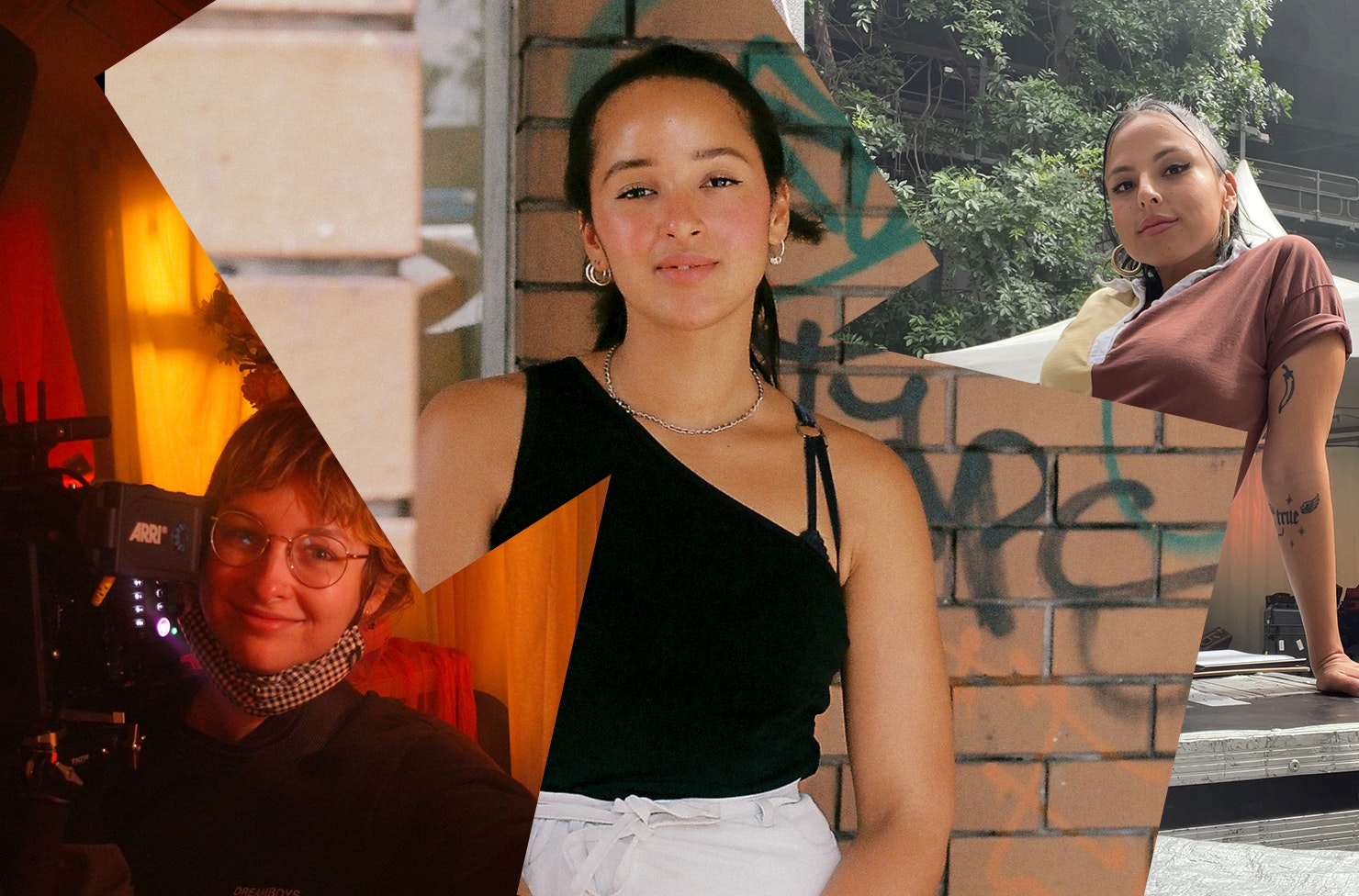Celebrate These 8 Changemakers Breaking Biases For Women Everywhere
“Without representation, it's really hard to be what you can't see.”
No, it’s not a quote from Germain Greer or Gloria Steinem, for that matter. In fact, they’re the poignant words from Sanjana Nagesh, founder of The Brown Girl Gang, a digital space, filled with almost 140,000 sisters, that champions and features inspiring South Asian women around the world. Sanjana’s words capture a pretty key element of this year’s International Women’s Day theme—break the bias.
So what biases do we need to break?
Looking back throughout history, the world’s archives and records inherently exclude the gendered experience of being ‘female’. From a lack of legal rights to ownership of their bodies, there are countless barriers for women’s lived experiences which exist because of the subtle yet incredibly long-term impact forged by inequality. However, to break these biases, we can’t just rely on calling out the dichotomous nature of gender binaries. Real social justice looks like absolute inclusivity regardless of ability, age, ethnicity, sexual orientation, gender expression or identity, relationship status, culture and most importantly, representation. Everywhere.
International Women’s Day hits on March 8 every year, so we decided to call upon eight women breaking barriers and building new pathways for all women across the globe. We asked them what changes they want to see for women, how they want to see individuals breaking biases for women and how they forge the way for women’s equality.
Sabina Mckenna
Curator, Model, Writer
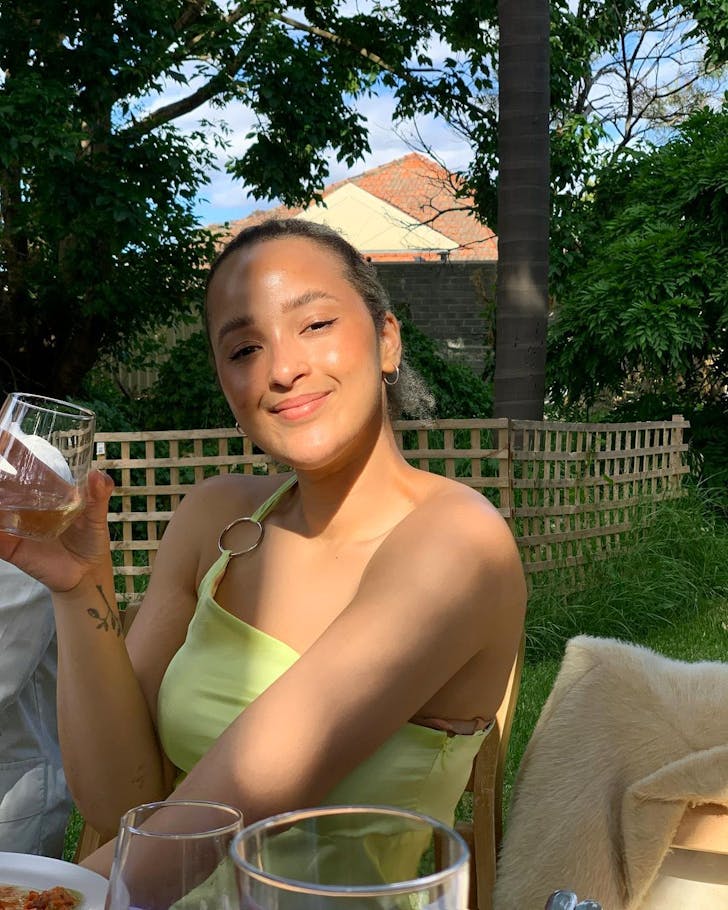
“Overall I would love to see more representation and support for emerging female identifying BIPOC writers and curators. Over the years I have noticed how rare it is to see other people like me reaching the level of success they should be for how incredible their work is. We need to uplift each other and really think about how the majority of space is being occupied. Like literally think - how much of this project/ exhibition/ tv series/ workspace, and so on, is providing jobs and opportunities to BIPOC women? It’s really too often that I see all or mostly male or all white lineups in the creative/entertainment industry and it feels like we should really be past that now.”
“I think more than anything people need to be interrogating their own biases and how that impacts their values, behavior and decision making. People aren't aware of how their own internal belief systems impact the way they treat others and what they consider valuable or credible. These biases are very deeply engrained and exist to varying degrees within all of us, and can be the source of so many negative outcomes for others. With that we should also be examining our own privilege in terms of access, identity, proximity to wealth and whiteness and really getting a deep handle on how that positions us above others. Understanding those things helps everyone.”
“I generally try to work with women and BIPOC women especially and prioritise sharing opportunities with them foremost. Not only do I connect with and understand those cohorts deeply, but I feel like through the support and respect we are able to give each other through that understanding, that tends to be where the magic happens! I have some beautiful creative connections with close BIPOC friends where we trade skills and share opportunities to help eachother grow. There is so much to be said for that and just generally prioritising the people that take you and your work seriously.”
Carolina De La Piedra
DJ Carolina Gasolina, A&R Elefant Traks, Radio Host
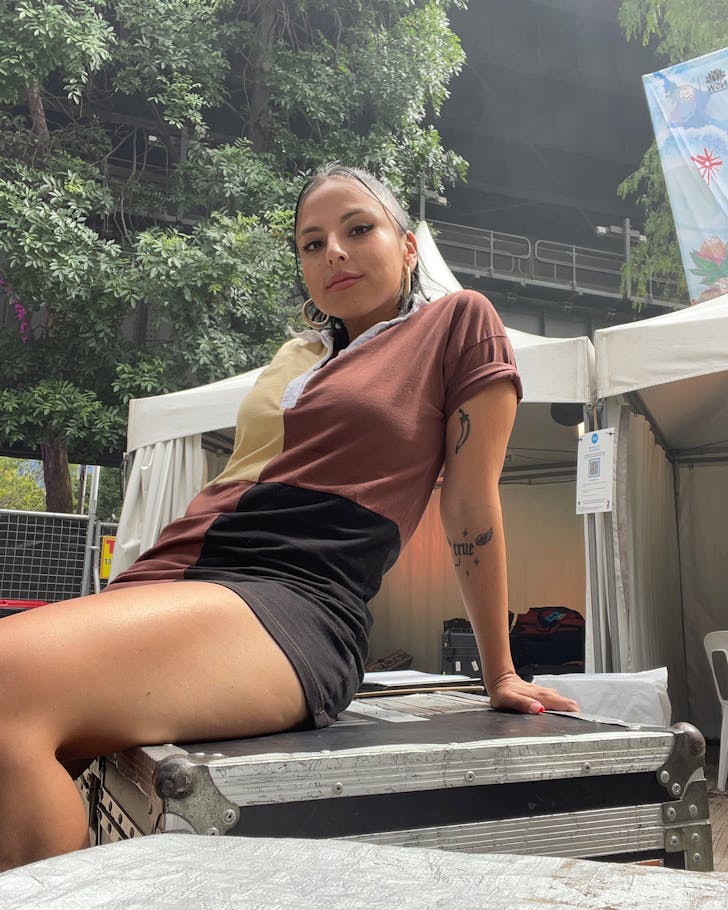
“For the most part I would like for us to have agency and feel confident enough to speak up and create dialogue without the fear of being intimidated or bullied into silence. I'd also like to see more men stand in solidarity with us and really be loud and proud about it. Consistency is key at this point."
“I would like people to take us seriously upon first encounters. We mean business just like any other man would. Whether it's djing, working backstage or even just going to a live gig to build your networks. Women in the industry are not there to appease the male gaze! i'm there to kill it on the decks, I'm there because I'm passionate about music and I want to build a life for myself in this industry.”
“I think my everyday existence in this industry is breaking biases and stereotypes for women. I'm an immigrant woman of colour from Western Sydney and I'm so proud of where I've come from although in the past I have been judged and shamed for that but I've persevered. I hope that through my work in A&R, Djing and broadcasting I open up doors and make it easier for girls like me to enter into the industry, not only that I want them to be able to see themselves and have someone they can relate to once they get here.”
Kate Cornish
Cinematographer, Director, Photographer
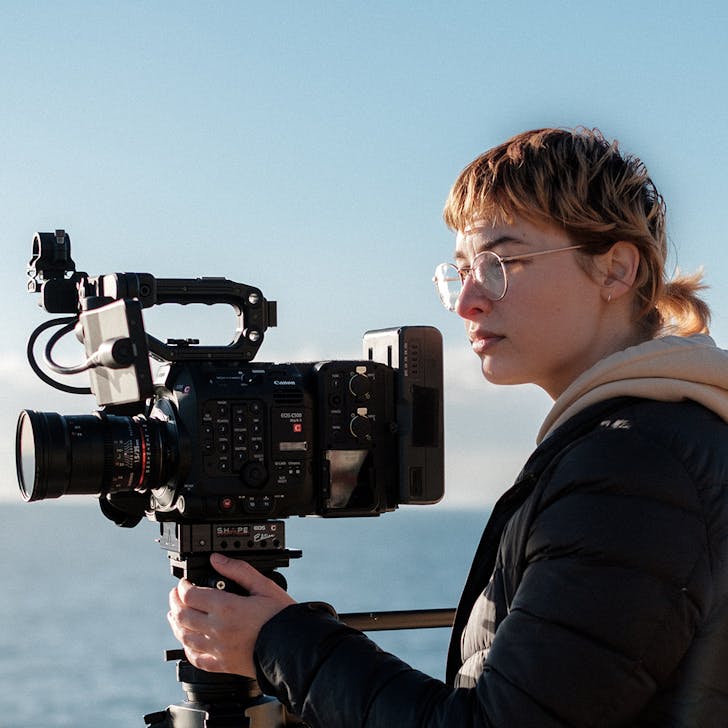
“The camera department on a film or TV set is generally male dominated. It can be hard to feel like you deserve a seat at the table, and imposter syndrome is rife. I'd like to see more women behind the camera, and not just as a tokenistic gesture.”
“I would invite those with preconceived notions about women's physical strength to rethink their biases. Yes the camera is heavy, but i'm happy to carry it all day!”
“I make it a habit to hire non-cis male camera assistants to work with me. I want to give those under me the opportunity to learn in a nurturing environment where they feel safe to ask questions!”
Chloe Dalton
Olympic Gold Medallist, Founder Of The Female Athlete Project
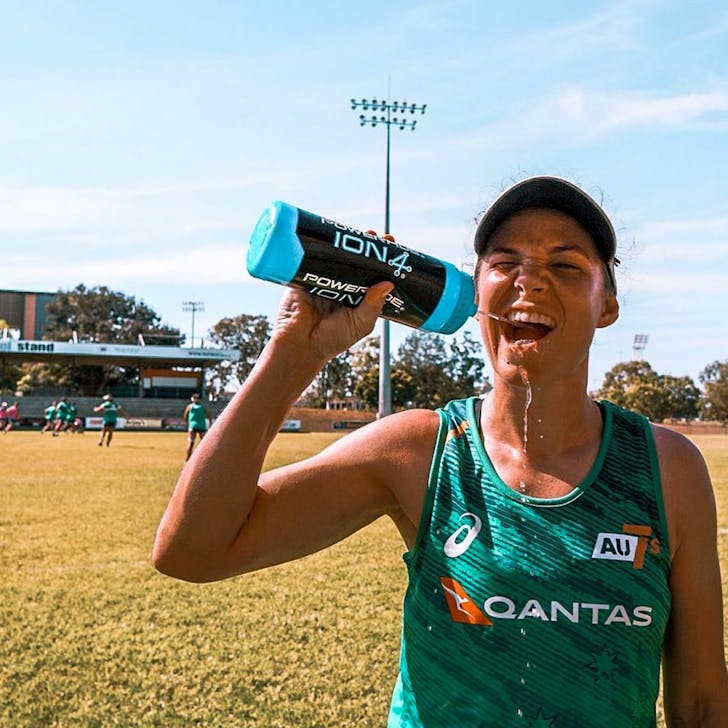
“The biggest change I would like to see in women’s sport is for women to be given equal opportunity, access, resourcing, representation and coverage. So often we are compared to our male counterparts, competing against a system of professional men’s sport that has existed for decades, with world class resourcing and funding.”
“In the past I have had the opportunity to be an ambassador for the organisation Our Watch, which works to promote gender equality for the prevention of domestic violence. It’s so important to change the story around girls and women being seen as ‘lesser than’. We all have a role in the language we use to recognise women as equal. I believe sport has the power to change attitudes and pre-existing ideas, and I take on the weight of this responsibility. As an athlete, I have the ability to change people’s attitudes about women based on how I conduct myself both on and off the field.”
“In 2020, I created the [Female] Athlete Project to address the gender inequalities that exist within the sports media space. One of my favourite things to do on a day off is to head down to the beach, grab a coffee and the paper, flick to the back page and read about sport. So often I feel frustrated with the lack of coverage of women’s sport, and I wanted to do something to change the story. It started out as a podcast, where I provide a space for female athletes to share their incredible stories of resilience, success, and what they have learnt from failure. It has since become the fastest growing women’s sport platform in Australia, covering the highlights and achievements of our incredible female athletes.”
Follow The Female Athlete Project here.
Sanjana Nagesh
Founder Of Brown Girl Gang
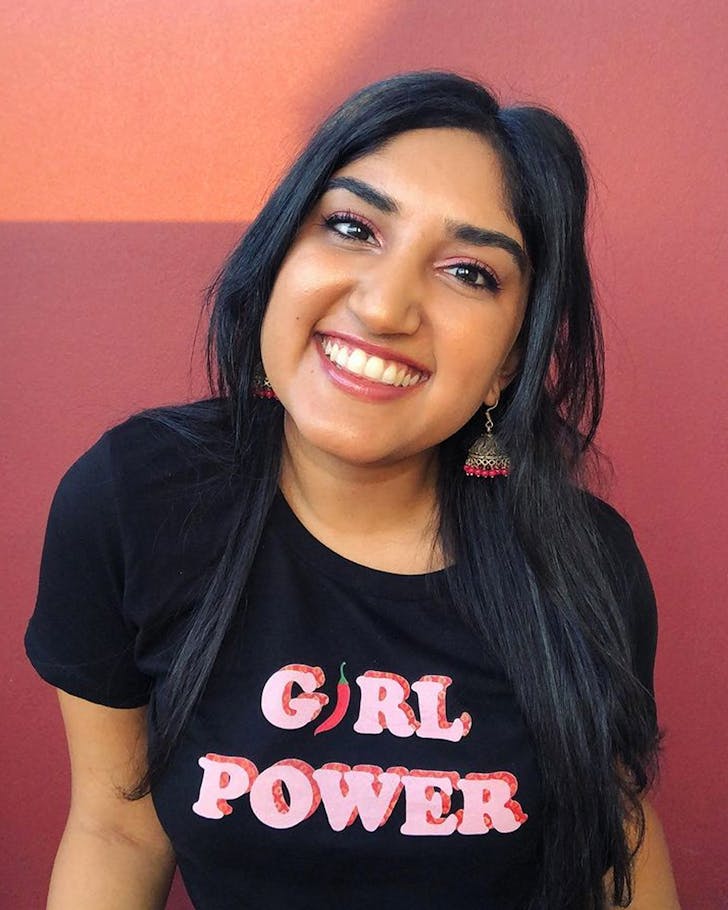
“I would love to see more founders and CEOs who are women, pursuing their passions and making a positive impact in this world. It's so crazy to think that women receive less than two per cent of venture capital funding, which was a US$200B+ industry last year in the US alone. We're so lucky to have trailblazers who have built billion-dollar companies such as Melanie Perkins (Co-founder, Canva) or Payal Kadakia (Founder, Classpass) and it would be incredible to see more amazing women change the world with their talent and vision.”
“A great place to start is more visibility, with more articles such as this one! Biases are often formed when people don't have exposure or an understanding around how truly powerful women can be. By bringing more visibility to women's stories, it creates a space for others to learn about various lived experiences, unlearn any biases and find that there's so much more to us than meets the eye—in the coolest way possible.”
“I started the Instagram community BrownGirlGang, a space to feature inspiring and badass South Asians around the world. It initially started as a personal mood board so I could curate the journeys of women of colour and hopefully learn how I could forge a more creative career for myself. Without representation, it's really hard to be what you can't see and mainstream media often portrayed South Asians as a series of stereotypes (think taxi driver, snake charmer, etc). So, by just sharing one Instagram post per day I started to showcase the various ways brown girls were pursuing their passions—from entrepreneurship, to music, sports, comedy, health and more. Not only did it help me break my own internal bias of what a South Asian girl could be but it gathered momentum along the way and it's still so surreal to see the following it has attracted!”
Hannah Diviney
Writer, Advocate
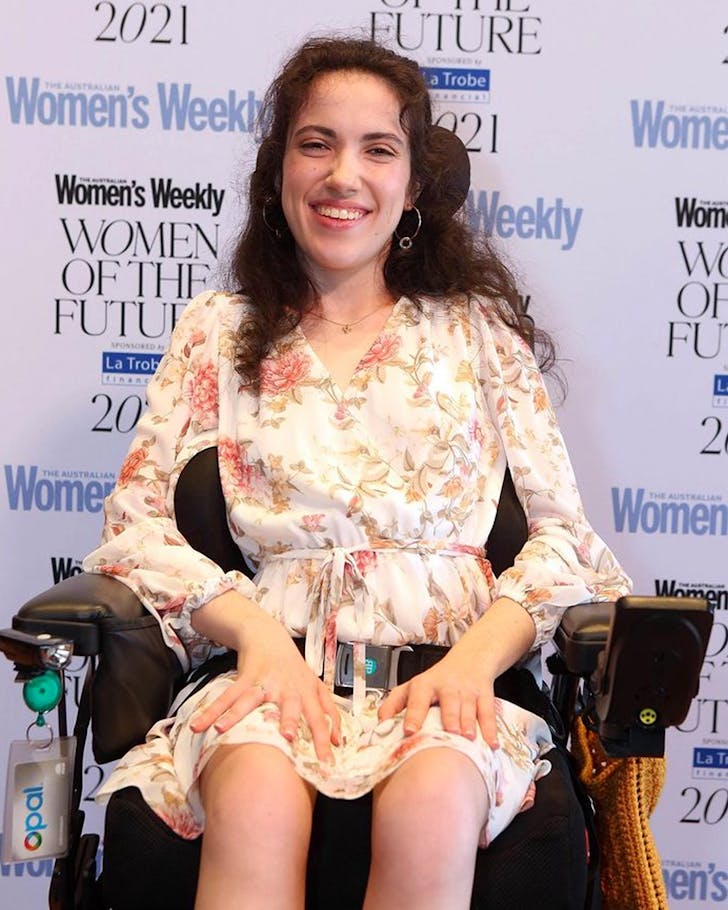
“I think women as a whole need to be given more space to tell their stories, to raise their voices. They need to be able to have power and agency without being punished which means giving them roles behind the scenes just as they need to be able to demand both respect and money for their time, experience and effort. We’ve also got to create room for their bodily autonomy, their reproductive choices and the kind of lives they choose to lead for themselves.”
“I think society still has a lot of work to do in the way we treat women’s knowledge, expertise and lived experience. What’s the worst that could happen if you valued a woman’s contribution or gave them power? I also think in 2022, it’s not enough to just be offering opportunities and platforms to cisgender white straight able-bodied women anymore. You have to be intersectional in your work – that means creating space for/platforming/giving opportunities to women of colour, disabled women, transgender women, and women who identify as other parts of the LGBTQIA+ community and I think there’s still plenty of layered bias around that for a lot of people.”
“I break bias every single day by being a disabled woman who has built herself a platform and a profile, often the only visibly disabled woman in the room. Beyond that, I also make a commitment to forge women’s equality as the Editor in Chief of Missing Perspectives, which exists as a global publication platform and grassroots feminist newsroom, tasked with addressing the marginalisation of women and girls on a global scale, elevating their lived experience and making room for the issues other media won’t touch.”
Gemma Pol
Communications Lead At Common Ground
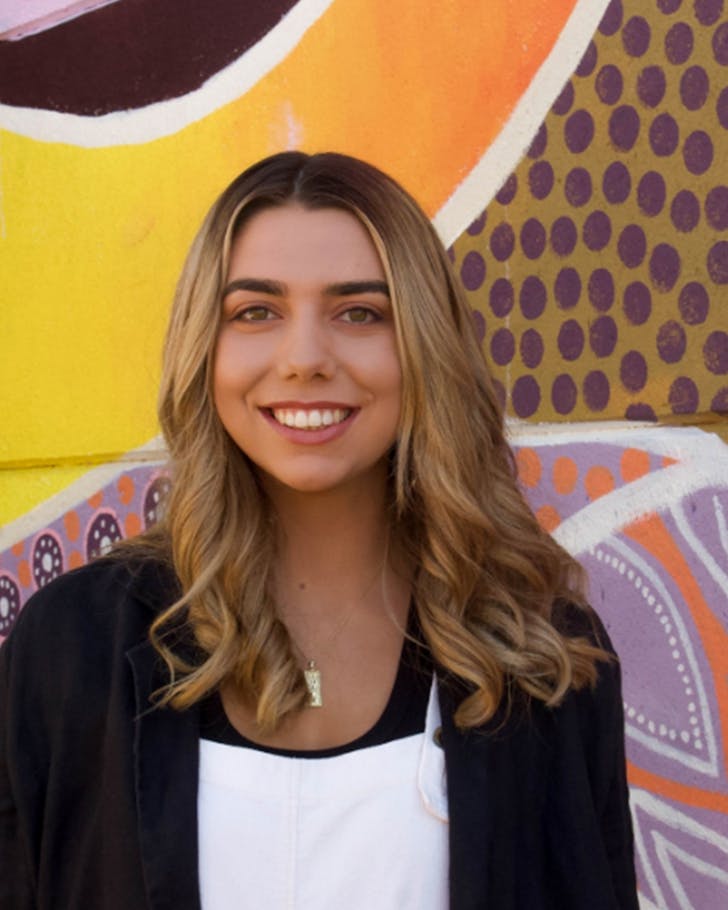
“Women and non-binary people deserve to work in safe spaces that honour our expertise and nurture our growth. We deserve workplace cultures that are grounded in justice, not sexism and misogyny. To do this, cis men need to deeply and genuinely listen to women – our diverse experiences and our staunch advocacy. In the not-for-profit sector, I want to see women being appropriately paid for their knowledge, time and energy. People need to stop expecting women to work for free.”
“I'd like to see people connecting the dots and realising how patriarchy and colonialism are linked. They are both about power and domination, they both result in oppressor-oppressed relationships, and they both harm Country and destroy the planet. So when we talk about ending sexism and misogyny, settler colonialism and systemic racism need to be part of the conversation too.”
“I'd also like to see more people backing women-led campaigns and gender equality initiatives. Groups like The Strong Grandmothers of the Central Desert and organisations like Sisters Inside and The Equality Institute are doing incredible work in the space.”
“Matriarchy (women governance) is central to many First Nations cultures. Women are often the heart of our families and communities. At Common Ground, we centre First Nations ways of being and knowing in everything we do. Honouring the Blak matriarchy and tiddahood in our work is super important to us.”
Follow First Nations Common Ground here.
Remonda Martinez
CEO Blue Haven Pools
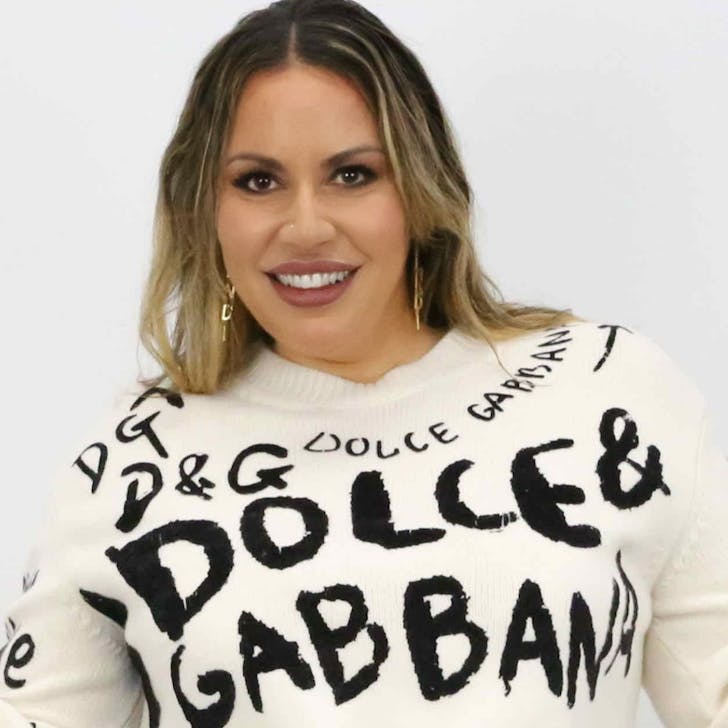
“Generally, women in the construction and building industry feel that they have to work harder to prove themselves and this should stop because if they either got the promotion or the job, then this should be a sign they are enough.”
“I want more people to embrace the truth that women don’t have to choose between having a career versus being a loving, present mother. I’m running a company that has an epic history and a proud legacy and yet amidst leading over a hundred team members and dealing with business challenges, I’ve never missed a single event of my three sons and even home cook 90 per cent of our family dinners. I think that if we want to start change, we should start within our home and network. At an early age, I want my sons to be exposed to an environment where equality is a reality. By setting an example of what every woman is — powerful, responsible, loving, and caring — my sons will become examples themselves on how to look at and treat every human being from all walks of life. Leading by example is a philosophy I apply not only at work but across every aspect of my life."
“At the end of the day, it is your brilliance and excellence that will earn you trust and respect and your gender has nothing to do with it. Women in my company, including myself experience bias and stereotypes every day with some of our customers asking if they can have a discussion with male personnel instead of us. Some customers ask me if they can speak to my male General Manager or ask my showroom ladies if there are any salesmen available, which is even more confronting since it’s in-person. During these times, we just continue to demonstrate excellence like normal and always. By giving exceptional customer service and illustrating how a particular investment is the best value for money, we see a breakthrough in trust.”
“ ‘Do you run it with your partner?’ This is usually the follow-up question whenever I tell someone that I run a residential construction company and help mums and dads transform their backyards and lifestyles across different social scenarios, whether I’m getting my morning coffee or running across an old colleague. Dressed up in my go-to outfit — a skirt, jacket, and heels, I am a walking proof that it’s not always a man who’s behind the business just because it’s construction.”
Now, here's how you strive for real inclusivity this International Women's Day.
Image credit: Sabina Mckenna, Danny Drax, Carolina De Le Piedra, Steph Jowett
